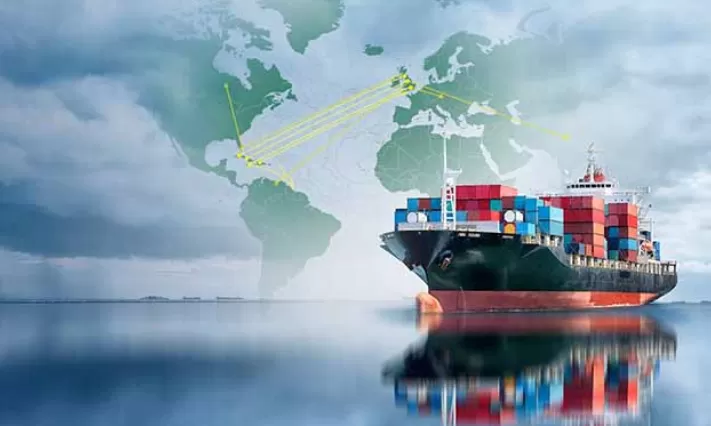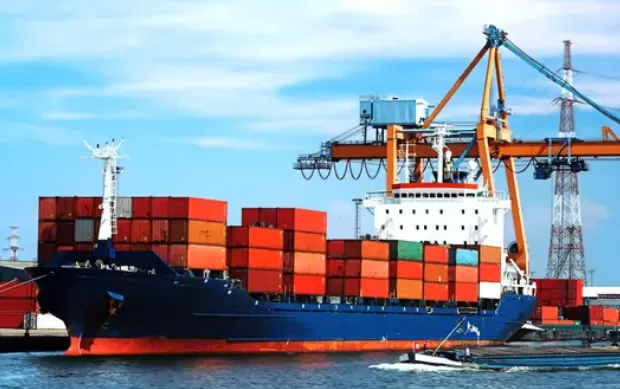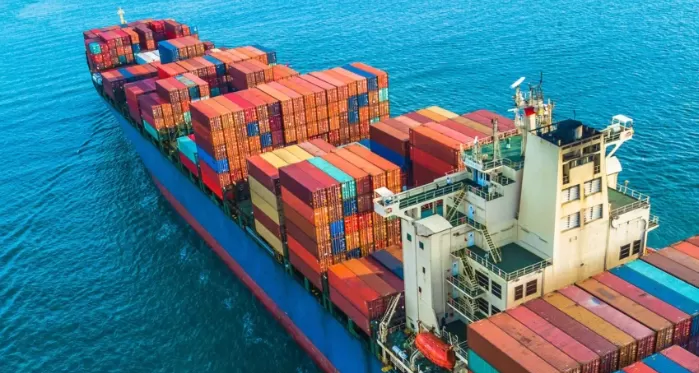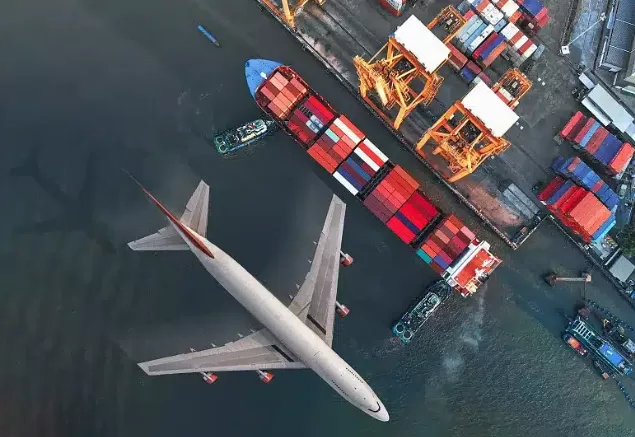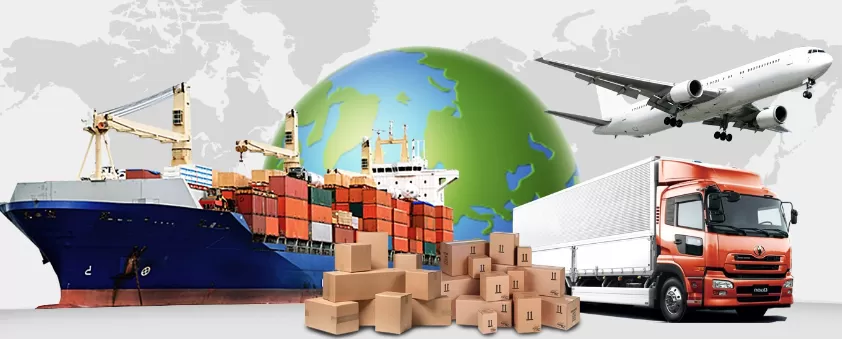This guide “Shipping From China To Jackson” is designed for importers, logistics managers, and Amazon FBA small and medium-sized sellers. It provides a step-by-step framework for making shipping decisions and executing them with confidence. We include 2025 reference price ranges and practical breakdowns (sea freight FCL/LCL, air freight, sea+express, sea+truck, door-to-door/port-to-port). You’ll find door-to-door cost and transit comparisons, inland drayage estimates from major U.S. ports to Jackson, ISF compliance deadlines, an FBA shipment checklist, sample inquiry emails, and a real SME case study. After reading, you’ll be able to request quotes, calculate landed costs, and choose the best shipping method for your business. (Estimated reading time: 6 minutes)
Are you ready?
Get real-time quotes for today Jackson
Get Quotes
Highlights (Key takeaways)
Sea (FCL): Typical 40ft spot est. $2,000–$5,500 / 40ft (query date: 2025-09-11). Use Freightos/forwarders for live quotes.
Air cargo: Market estimate est. $3.5–$6 / kg for China→US (2024–2025 level). Use for high-value or urgent stock.
Express (DHL/UPS/FedEx): Premium door-to-door — best for parcels and urgent samples; higher per-kg rates, usually includes brokerage.
Transit times: Sea 25–50 days (depends on port + drayage), Air 2–7 days door-to-door, Express 1–4 days. Plan for peak-season congestion (Jul–Oct).
Best ports to evaluate for Jackson: New Orleans, Savannah, Houston, NY–NJ, LA/Long Beach — select by total door-to-door cost (ocean + drayage), not only ocean leg.
Contents
One-page overview — when to use each mode
Cost & transit comparison (door-to-door)
Detailed execution: step-by-step for each mode
FBA (SME) checklist & FBA rejection prevention
SME example with landed-cost math
Port → Jackson drayage table (miles + sample ranges)
Compliance & ISF (exact instruction)
Quote email template & Quick quote CTA (form fields)
DIM weight, restricted goods, and decision rules
Schema & downloadable checklist CTA
Six immediate actions
One-page overview — when to use each mode
Air freight — 2–7 days door-to-door. Best for high-value, low-volume, urgent replenishment. Billed per kg or by dimensional (DIM) weight.
Sea — FCL (full container) — 25–50 days door-to-door. Best for large recurring shipments; lowest unit cost.
Sea — LCL (less-than-container) — 30–50 days. Good for trials/small batches; higher handling cost and higher damage risk.
Sea + Express (sea+express) — sea mainleg + express tail to final delivery or FBA. Good for small carton counts needing faster final-mile.
Sea + Truck (sea+truck) — sea mainleg + drayage/trucking for pallets/heavy cargo. Best for palletized volume and better per-unit cost.
(Decision rule: choose by volume (CBM), value ($ per unit), urgency (lead time), and whether shipment goes to Amazon FBA.)
Cost & transit comparison — estimated door-to-door (2025 ranges)
|
Mode
|
Typical cost (example)
|
Door-to-door transit
|
Best for
|
|
Air freight (per kg)
|
$3.5–$6 / kg
|
2–7 days
|
Urgent, high-value, low-volume
|
|
Courier (DHL/UPS/FedEx)
|
$12–$40 / kg (parcels)
|
1–4 days
|
Samples, returns, urgent small parcels
|
|
FCL 40ft (China→US)
|
$2,000–$5,500 / 40ft (spot)
|
25–50 days
|
Large orders, recurring replenishment
|
|
LCL (per cbm)
|
$60–$140 / cbm (variable)
|
30–50 days
|
Small-batch tests
|
|
Sea + Express
|
Sea mainline + express tail
|
20–35 days
|
Small carton FBA shipments (faster tail)
|
|
Sea + Truck
|
Sea + drayage (typical $500–$2,000)
|
18–45 days
|
Pallets, heavy/bulky cargo, cost control
|
Cost & transit
Get real-time quotes for today Jackson
Get Quotes
Detailed execution — step-by-step (who does what & days)
Air freight (example: Shenzhen → LAX → Jackson)
Route: Supplier → domestic pick-up → export customs → air mainleg → destination customs → truck/courier → Jackson.
Steps & days
Supplier pack, label, send packing list — 2–4 days.
Domestic pick-up & export clearance (forwarder) — 1–2 days.
Air mainleg — 1–3 days.
Destination clearance & handoff — 0.5–1 day.
Final mile to Jackson / FBA — 1–2 days.
Door-to-door: 2–7 days.
Notes: Provide accurate carton dimensions (DIM weight). Declare dangerous goods (e.g., lithium batteries) early.
Sea — FCL (example: Shanghai → Savannah → Jackson)
Route: Supplier → stuffing/palletizing → export customs & cut-off → ocean mainleg (15–30 days) → port release → pickup/drayage → Jackson.
Steps & days
Supplier palletize & photograph loaded container — 2–5 days.
Container to origin port & export clearance — 1–3 days.
Ocean mainleg — 15–30 days (routing-dependent).
Port release, B/L processing, import customs — 1–5 days.
Drayage to Jackson — 1–4 days.
Door-to-door: 25–50 days.
Critical compliance: ISF must be filed at least 24 hours before vessel departure (see section below). Confirm cut-off with forwarder.
Sea — LCL
Same as FCL but add consolidation/deconsolidation +2–7 days at origin/destination. Request a detailed LCL charge breakdown (consolidation, port handling, deconsolidation, local delivery).
Sea + Express vs Sea + Truck — practical choice
Sea + Express: faster final-mile for small cartons. Courier limits: weight/size per piece; may reject pallets. Use if ≤ ~10–20 cartons (rule of thumb).
Sea + Truck: for pallets, heavy cargo, large volumes. Book drayage & appointment windows early.
FBA (SME) checklist — prevent rejections
Create shipment in Seller Central — generate FBA Box IDs / Pallet IDs.
Aim for ≤50 lb (~22.7 kg) per carton unless pre-approved.
Standard pallet: 40×48 in; check Amazon height & weight limits.
Send carton dims, weights, FNSKU list, and photos to supplier + forwarder — confirm triple.
Forwarder submits carrier appointment to Amazon before arrival.
Prepare commercial invoice, packing list, B/L or AWB, and ISF (ocean).
Keep POD/ASN receipt after delivery.
Trial with sea+express before full containers.
Keep safety stock 10–15% for possible customs/port delays.
Amazon FBA
Get real-time quotes for today Jackson
Get Quotes
FBA rejection prevention — quick checklist
Box labels: correct FBA Box ID on each carton (visible).
Pallet wrap: protected, corners stabilized, no overhang.
Photos: photos of packaged cartons & palletized load sent before shipment.
Appointment: forwarder confirms Amazon appointment; get confirmation ID.
Proof: retain POD / ASN for claims.
SME example — landed-cost math & decision model
Profile: Seller A — monthly 1,800 units; total 6 CBM; target FBA near Jackson.
Options & estimates
Sea + Express (trial) — est. $1,200–$2,200; transit 20–35 days — low-risk test.
LCL — est. $600–$1,200; transit 30–50 days; higher handling risk.
Shared 20ft / co-load → sea + truck — when monthly ≥ 12–16 CBM, half-container cost example $1,800; landed unit cost drops ~18–25% vs LCL.
Landed cost worked example (replace values with your quotes)
One sample carton (20 kg) shipped sea+truck (pro-rated costs)
FOB factory price: $10.00
Allocated ocean freight: $1.20
Insurance (all-risk): $0.10
Estimated import duty (5%): $0.50
Customs broker & port fees: $1.00
Drayage & last-mile: $2.00
= Landed unit cost = $14.80
(Replace numbers with your actual quote values to compute your landed cost.)
Port → Jackson drayage table (distance & sample 40' drayage ranges)
Illustrative ranges — confirm live quotes.
|
Port
|
Driving distance to Jackson (approx)
|
Typical 40' drayage estimate*
|
|
New Orleans
|
~185 miles (~3.5 hours)
|
$500–$1,000
|
|
Houston
|
~370 miles (~6–7 hours)
|
$600–$1,200
|
|
Savannah
|
~600 miles (~10–11 hours)
|
$800–$1,800
|
|
NY–NJ
|
~950–1,050 miles
|
$1,000–$2,000+
|
|
LA / Long Beach
|
~1,200+ miles
|
$1,200–$2,500+
|
*Ranges indicative — drayage depends on truck type, fuel, tolls, and carrier; always request live drayage quotes for your exact shipment.
Compliance & ISF — exact instruction (do this)
ISF (Importer Security Filing): submit no later than 24 hours before vessel departure from origin. Forwarder or importer must confirm filing and keep the ISF filing ID. Missing or late ISF can cause hold, fines, or extra fees. (Prepare customs data 3–4 days early to avoid last-minute issues.)
Other documents: commercial invoice, packing list, B/L or AWB, country of origin, HTS/HS code, insurance certificate. Use a licensed customs broker for clearance and bond handling.
DIM weight formula, restricted goods & decision rules
DIM weight (kg) = (L(cm) × W(cm) × H(cm)) / 5000
Example: 60 × 40 × 40 cm → (60×40×40)/5000 = 19.2 kg DIM.
Restricted / regulated goods — declare early and check carrier acceptance:
Lithium batteries (strong rules for air & courier).
Food, plant/animal products (requires permits & possible inspections).
Cosmetics / chemicals (may need safety data sheets and approvals).
Controlled chemicals / hazardous goods (IMDG/IATA rules).
If cargo is in these categories: state this in your quote request and confirm carrier acceptance and permit needs before booking.
Rule of thumb: sea+express vs sea+truck
If shipment ≤ ~10–20 cartons (or ≤ 2–3 CBM): sea+express is usually faster and simpler.
If shipment > ~20 cartons or > 3 CBM (or palletized): sea+truck / co-load / FCL is typically cheaper per unit.
Six immediate actions (do these now)
Use the quote form fields above and request itemized quotes from 2–3 forwarders.
If shipping to FBA: run one sea+express trial (small carton count) to validate the process.
Prepare and upload documents 7–10 days before vessel/flight departure.
Submit ISF at least 24 hours before vessel departure (earlier if possible).
Compare total door-to-door cost (ocean/air + drayage + customs + last-mile). Don’t compare ocean leg only.
After delivery, collect POD/ASN and keep records for claims.
Would it be cheaper to use a freight forwarder like Shipping From China To Jackson?
Is it cheaper? For shipments larger than small parcels, yes, it typically is. Forwarders secure discounted rates from carriers by consolidating volume and optimizing the entire shipping route.
Key Advantages:
Cost-Effective: Benefit from negotiated freight rates, especially for ocean and air shipping.
Hassle-Free: They act as your single point of contact, managing the entire process: international transport, customs clearance, and final delivery.
Expertise & Compliance: They ensure your cargo meets all regulations and handle customs efficiently, preventing costly delays.
Considerations:
You must select a reliable partner known for clear communication and transparent, all-inclusive (DDP) pricing.
The Bottom Line: For shipping more than a few small boxes, using a freight forwarder is generally the more economical, efficient, and reliable choice.
How can I reduce the cost of shipping from China to Jackson?
For SMEs prioritizing absolute lowest cost for non-urgent shipments, consolidated sea freight (LCL) is the definitive solution. The most optimized and frequent route is:
Primary Route:
Shenzhen/Ningbo/Shanghai (China) → Los Angeles/Long Beach, CA (LGB Port) → Memphis, TN (Interior Logistics Hub) → Jackson, MS (Final Trucking)
Why This Route is Optimal:
Port Efficiency: It suggests a primary, optimal route for the lowest cost, which is through the ports of LA/Long Beach and then via an interior logistics hub in Memphis, TN.
Interior Hub Access: Memphis is a major U.S. logistics hub. Deconsolidating containers there and utilizing its extensive trucking network for the final leg to Jackson is highly efficient and cost-effective.
Key Considerations for Maximum Savings:
Shipment Profile: Ideal for shipments larger than 2-3 CBM (cubic meters).
Lead Time: Requires planning for a 30-40 day total transit time.
Packaging: Optimize carton and pallet dimensions to minimize volume (CBM), as this is the basis for LCL pricing.
Quoting: Always request DDP (Delivered Duty Paid) quotes to ensure all costs (ocean freight, customs, duties, trucking) are included upfront.
Bottom Line: This LCL route via West Coast ports and interior hubs provides the lowest cost per unit for SMEs shipping substantial volumes to Jackson.
freight forwarding
Get real-time quotes for today Jackson
Get Quotes
FAQ (short direct answers)
East Coast vs West Coast — which is better for Jackson?
East/Gulf ports (Savannah, New Orleans, Houston) often reduce drayage time and cost for Jackson compared with West Coast due to shorter inland distance; West Coast can be faster for certain intermodal services but may add rail/truck cost.
FCL vs LCL — when to pick each?
If you consistently fill most of a container (≥50–60% of 20ft) pick FCL. LCL suits irregular small shipments but has higher per-unit handling.
Express vs air cargo — what’s the difference?
Express = courier (DHL/UPS) with door-to-door service & brokerage; air cargo = airline AWB shipments booked via forwarder (cheaper per-kg for larger volumes).
How long does it take from Shanghai to Jackson by sea?
Typically 25–40 days door-to-door via East/Gulf ports; add time for customs and inland trucking.
How to estimate landed cost?
Landed cost = product cost + international freight + insurance + duties + inland trucking + brokerage + port fees. Use a freight calculator (e.g., Freightos) for live freight legs.
Should SMEs buy long-term freight contracts?
If you have predictable volume, yes — term rates reduce spot volatility risk and simplify budgeting.
How to avoid customs delays?
Submit ISF early, use correct HS codes, keep invoices consistent, and appoint a reputable customs broker. (Common cause: missing docs or mismatched descriptions.)
Is air cheaper now compared to 2023–24?
Air rates have softened from pandemic peaks but remain above long-term pre-pandemic baselines; check current Freightos/DHL/IATA updates before booking.
Related Routes
Shipping from China to Los Angeles
freight forwarder from China toChicago?
Shipping from China to Minneapolis
Shipping to Detroit from China
Ship from China to Boston

 EN
EN
 FR
FR
 ES
ES
 JA
JA
 PT
PT
 RU
RU
 AR
AR
